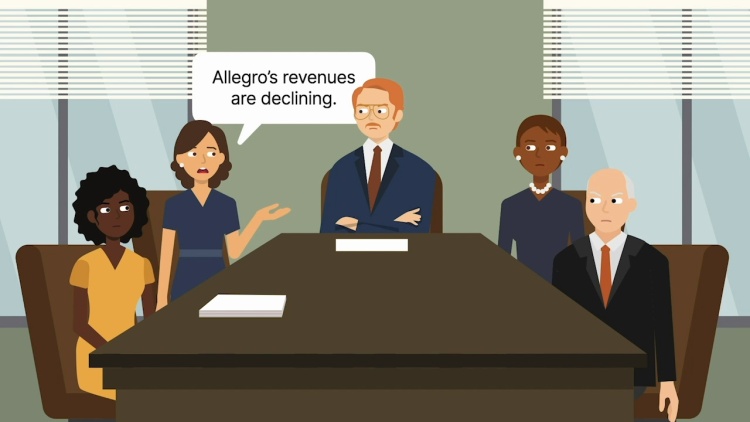Klaassen v. Allegro Development Corp.
Delaware Supreme Court
106 A.3d 1035 (2014)
- Written by Robert Cane, JD
Facts
In 1984, Eldon Klaassen (plaintiff) founded Allegro Development Corporation (defendant), a software company. In 2007, Klaassen solicited investments from venture capital firms. North Bridge Growth Equity 1, LP and Tudor Ventures III, LP (the Series A investors) invested a total of $40 million in exchange for all of Allegro’s Series A preferred stock. Allegro, Klaassen, and the Series A investors entered into a stockholders’ agreement and amended the corporate charter and bylaws to organize Allegro’s board of directors as a seven-member board. The board would include three directors elected by the holders of Series A preferred stock, one director elected by holders of common stock, the CEO, and two directors designated by the CEO and approved by a vote of stockholders. In practice, Allegro operated with a five-member board (two directors elected by holders of Series A preferred stock, two outside directors, and Klaassen as CEO). Soon after the infusion of capital from Series A investors, Allegro’s revenues started to decline drastically. The board and Allegro’s shareholders grew frustrated with Klaassen’s performance and conduct. By fall of 2012, the board had turned against Klaassen and sought his removal. On November 1, 2012, at a regularly scheduled board meeting, the four directors of Allegro voted to remove Klaassen as CEO (with Klaassen abstaining) and appoint Raymond Hood as interim CEO. Initially, Klaassen offered to help Hood transition into his role as CEO. Klaassen also entered into negotiations with Allegro regarding a consulting agreement. The board appointed Klaassen to two committees. On one committee, Klaassen reviewed and provided feedback on Hood’s employment agreement. At some point, Klaassen started indicating he was unhappy with his removal. In June 2013, Klaassen attempted to retake his position as CEO, arguing his removal was invalid and voidable. Klaassen claimed the power to remove two directors and elect three new directors. At the same time, Klaassen filed an action for declaratory relief in the Delaware Court of Chancery, claiming that the directors had breached their fiduciary duty and did not give him notice of their plan to remove him.
Rule of Law
Issue
Holding and Reasoning (Jacobs, J.)
What to do next…
Here's why 907,000 law students have relied on our case briefs:
- Written by law professors and practitioners, not other law students. 47,100 briefs, keyed to 996 casebooks. Top-notch customer support.
- The right amount of information, includes the facts, issues, rule of law, holding and reasoning, and any concurrences and dissents.
- Access in your classes, works on your mobile and tablet. Massive library of related video lessons and high quality multiple-choice questions.
- Easy to use, uniform format for every case brief. Written in plain English, not in legalese. Our briefs summarize and simplify; they don’t just repeat the court’s language.





